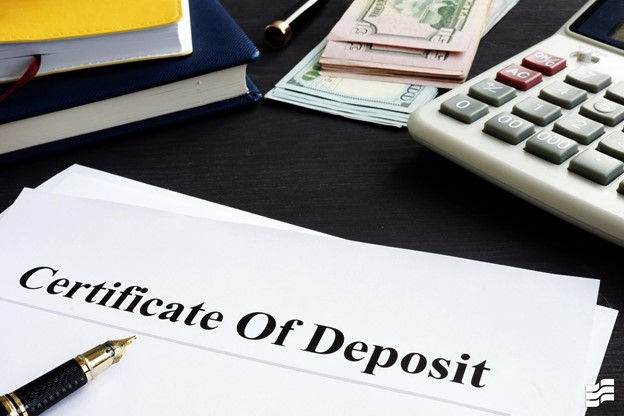Why is it Important to Have a Checking Account

 Meg Schutte
Nov 11, 2022
Meg Schutte
Nov 11, 2022
Find the changing economy challenging? You’re not alone. Marketplace volatility is making it harder to decide where to invest money. But, right now, compared to high-yield savings accounts, the stock market, and other investments, Certificates of Deposit (or CDs) continue to offer a safe, predictable and relatively risk-free option. You get a guaranteed, higher rate of return on your deposits in exchange for allowing banks to hold your funds for a defined length of time. No matter what you’re saving for, you’ll know exactly how much money you’ll earn over your CD term, whether it’s months or years.

Why 2022 is Different
While interest rates have been low for years, the Federal Reserve has increased the fed funds rate five times to combat the rising inflation that continues to define 2022. The result? CD interest rates have risen from close to 0% to over 3.0%. If you’re looking to round out your financial portfolio, earmark funds for a long-term goal, or just jumpstart your savings, today’s market couldn’t be better for opening a CD.
Here’s what you need to know.
Deposit: This is how much you commit to putting away in a CD. Know that you can’t withdraw earlier than the agreed upon term, or you will pay a price.
Term: This is the length of time you’re willing to lock up your cash to earn interest over a defined period of time, or term. CD terms typically range from three months to five years, with longer term CDs typically offering a higher APY (Annual Percentage Yield).
Short Term CDs:
Long Term CDs:
Maturity Date: This is the date your CD term ends and you can withdraw funds plus interest. You can also renew the CD, deposit more money, and keep or change the term length. Take the time at renewal to re-evaluate, as your initial rate might no longer be competitive.
Early Withdrawal Penalty: If you find you need your cash before the end of the term, you can withdraw your money early but will incur a penalty -- anything from many months or years worth of interest.
Choose the CD that Fits Your Financial Plans
From fixed-rate or variable rate CDs to ones that respond to the marketplace, you have a wide variety of choices. For each type listed below, APYs, flexibility and penalties will vary. So do your research, figure out what exactly you’re saving for (short or long-term needs), and get honest about your comfort level with how long your money will be tied up.
Think of CDs as Forced Savings
This is a good thing. When your money is locked up in a CD, it’s not in your pocket, accessible on your debit card, or easy to withdraw from your savings account. CDs are a smart way to make more of the money you’ve earned, saved, or inherited. Be sure to shop around (banks, credit unions, online banks) for the best rate, a term you can get behind, and which offer the services and features that are important to you.
CD Checklist:
Before you commit your money, and depending on the CD you choose, find out about the following:

Bank of Hope: Find CDs that Work For You
At Bank of Hope, we’re always looking for new ways to help our customers succeed in life. That’s why we’re always prepared to meet marketplace changes. Make the most of your money with these limited time, competitive CD offers. Don’t wait, apply today.
Visit our website through the following link to learn more:
Meg Schutte is a Bank of Hope Blog contributor.
The views and opinions expressed in this article do not necessarily represent the views and opinions of Bank of Hope.


